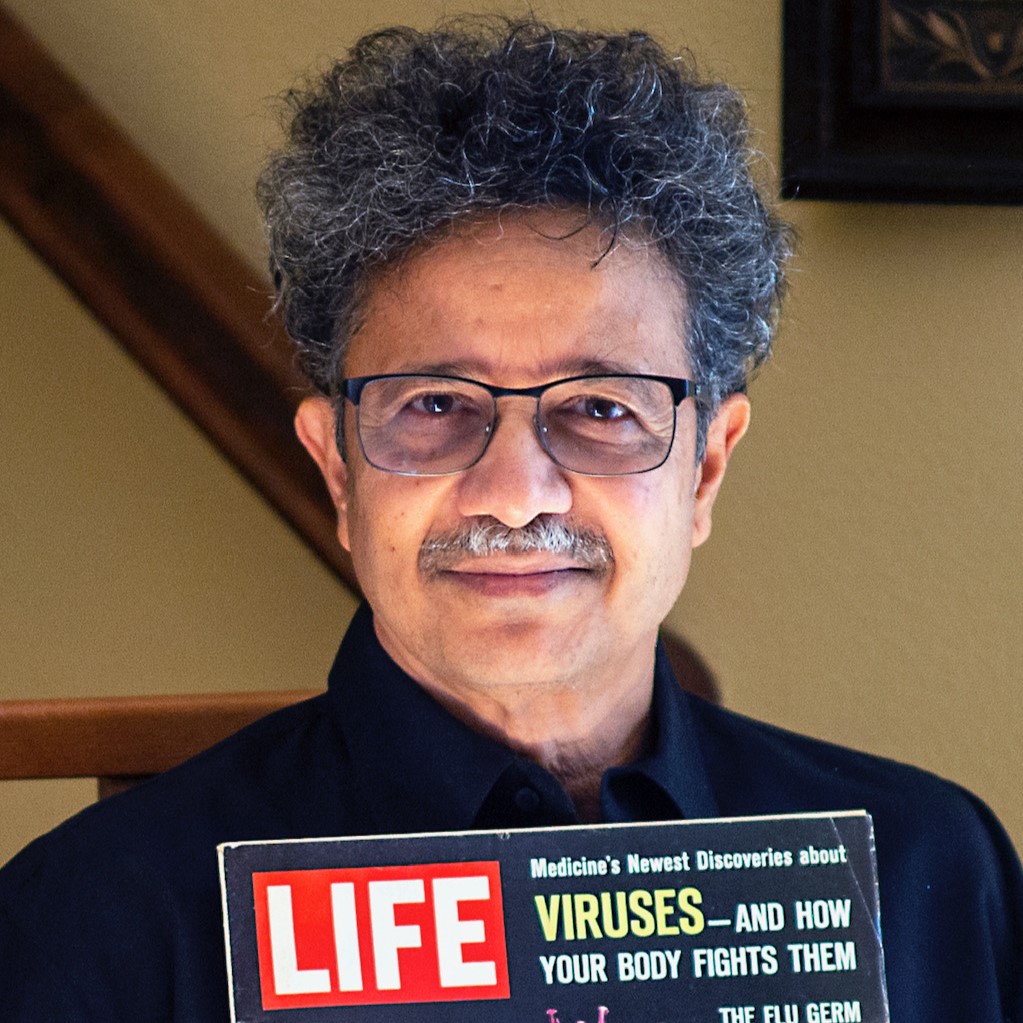
Animesh Ray, PhD
Professor, Systems Biology
Henry Riggs School of Applied Life Sciences Keck Graduate Institute
Animesh Ray obtained his PhD in microbial genetics from Monash University in Melbourne, Australia. He conducted postdoctoral research at the Institute of Molecular Biology, University of Oregon, Eugene, and at MIT. He was an assistant and associate professor at the University of Rochester. He is currently a professor of Systems Biology and Genomics at Keck Graduate Institute, where he has been since June 2001.
Unlike most biologists, he has switched his area of research nearly every seven years, initiating a fruitful direction of inquiry, then moving on to less explored vistas. Part of his 1985 PhD work is an early example of synthetic biology, ultimately leading to an understanding of a selfish RNA-mediated opportunistic evolutionary strategy employed by certain extrachromosomal elements to eliminate competition in bacteria. He worked on the induction of homologous recombination by in vivo artificial chromosome breaks in the late 1980s and 1990s at the University of Oregon, MIT, and the University of Rochester, contributing concepts to the current strategy of gene targeting by making chromosomal breaks, such as with TALONs, zinc finger nucleases, and CRISPR/Cas9.
From 1991 to 2004, his laboratory's work at Rochester contributed to understanding the genetic basis of pattern formation in plants. His laboratory identified and isolated all members of the Dicer group of genes in plants (DCL1-4). He, with computer scientist colleague Mitsunori Ogihara, made pioneering contributions in the 1990s to the paradigm of massively parallel computing with DNA. In the 2000s, he contributed to data integration methods in biology, gene network analysis, and machine learning approaches in biological pattern discovery. More recently, his laboratory has explored the evolutionary robustness of genomes from an experimental perspective in yeast. Since 2007, he has been contributing to understanding the role of microRNAs and long noncoding RNAs in cancer. His laboratory at KGI is funded by an NIH Director’s Award for Transformative Research; they are using deep neural networks, Large Language Models, and Generative Adversarial Networks on single-cell RNAseq data to construct novel antibodies of defined specificities.
Animesh has successfully led large groups of principal investigators in multi-institutional research grants and in corporate research contexts and has been a member of multiple Federal steering committees/panels for NSF Engineering Research Centers and the DOE. He has been a member of the Scientific Advisory Boards of several biotechnology companies and a venture capital company.
Speaking In
-
06-Jun-2024Talent Development for a Digital WorldBioProcess Theater


)